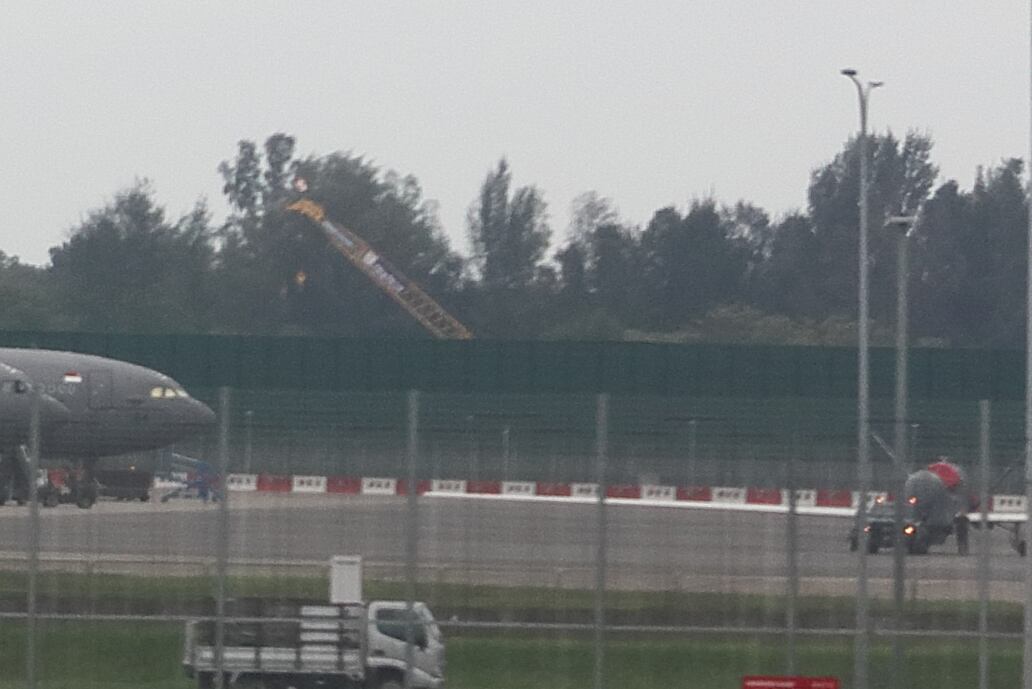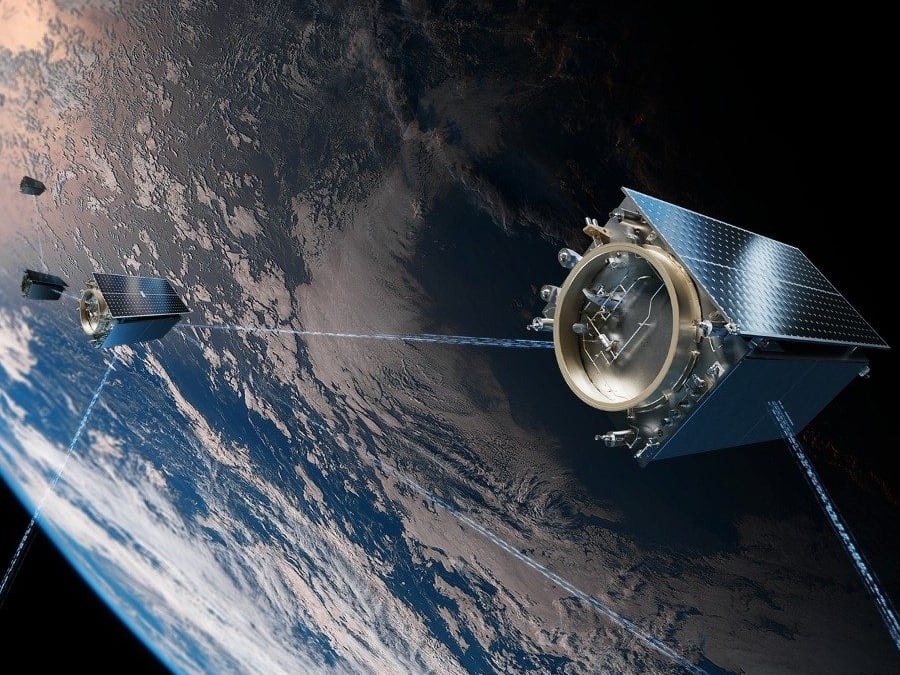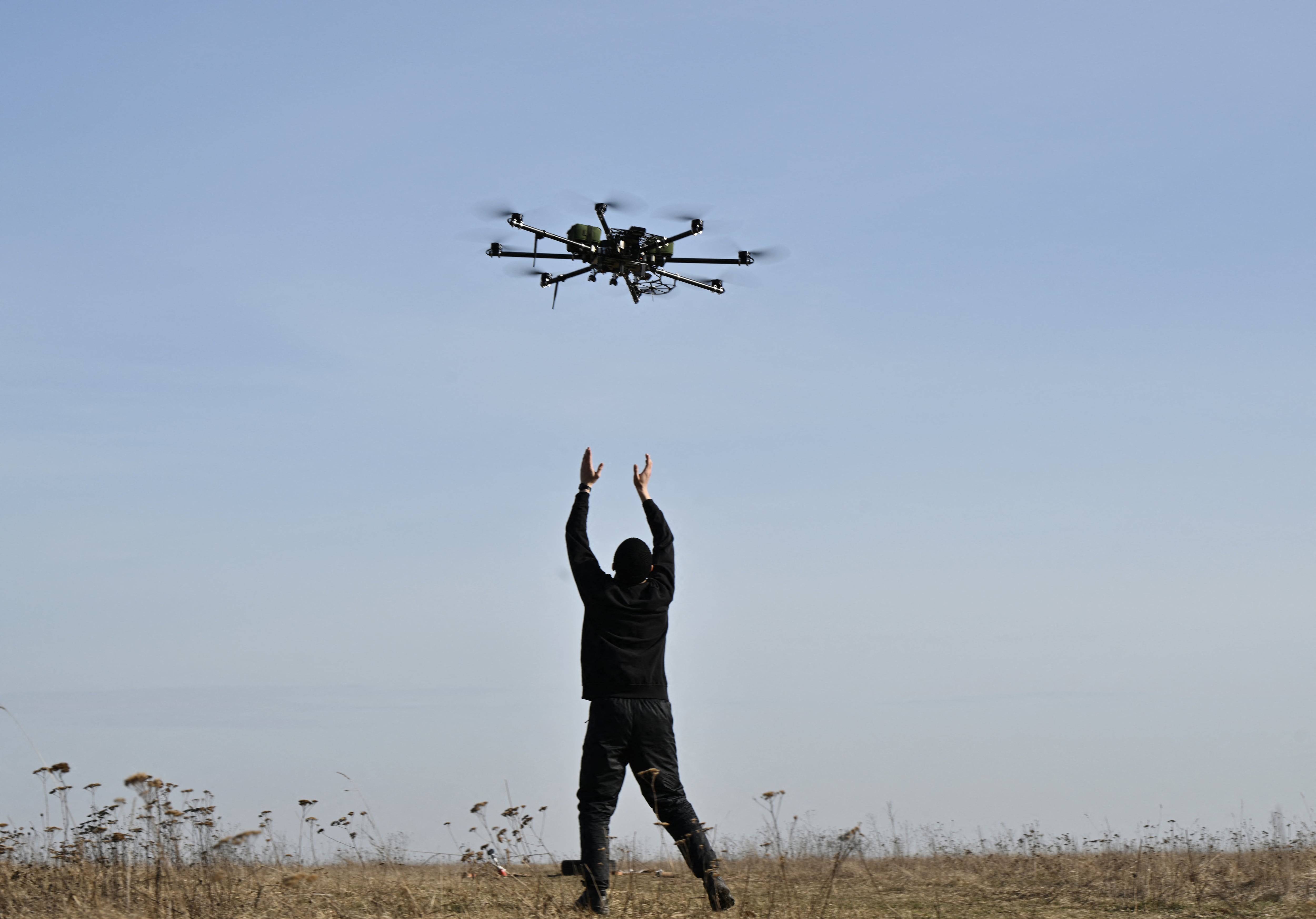MELBOURNE, Australia — The U.S. Air Force has rotationally deployed the RQ-4 Global Hawk drone to Singapore since January, Defense News has learned.
The Northrop Grumman-made high-altitude, long-endurance UAV was sighted at Changi Air Base (East) on multiple occasions from January onward, and Defense News has obtained a photograph of it being towed at the base.
The image was taken from a commercial airliner during takeoff in late February from Singapore’s Changi International Airport, which shares a runway with the base.

This is the first known operational deployment of the Global Hawk to Singapore, although it has previously visited the island nation for air shows in 2018 and 2022.
Singapore’s Defence Ministry confirmed in a statement to Defense News that the country “facilitated the short-term deployment of an RQ-4 Global Hawk Unmanned Aerial Vehicle, as part of the 1990 Memorandum of Understanding Regarding United States Use of Facilities in Singapore.”
The ministry provided no further details of the deployment, and the U.S. Air Force referred questions about the deployment to Pacific Air Forces, an American command in the region. Neither Pacific Air Forces nor the U.S. Embassy in Singapore has responded to questions about the deployment.
However, sources in Singapore have told Defense News the unmanned aircraft arrived in January and was still operating from the island in early March, and that it has flown missions almost exclusively at night during the deployment.
The Global Hawk’s long endurance, which the U.S. Air Force says is in excess of 34 hours, means it can take off at night and stay in the air during daylight hours before landing again the next evening.
The deployment also coincided with the presence of the U.S. Navy aircraft carrier Nimitz and the amphibious assault ship Makin Island — as well as and their respective strike groups — in the South China Sea. Both of those ships and several of their escorting vessels visited Singapore’s Changi Naval Base during this period.
In addition to hosting a U.S. Navy logistics facility, Singapore is a security partner of the United States. A 1990 memorandum signed by both countries — and renewed in 2019 — allows American forces to access Singapore’s air and naval bases on a rotational basis. This has seen the southeast Asian nation host rotational deployments of U.S. Navy littoral combat ships and P-8A Poseidon maritime patrol aircraft.
Singapore has separate agreements for its Air Force jet and helicopter detachments to train in the continental United States and conduct rotational air combat training in Guam.
Stephen Losey in Washington contributed to this report.
Mike Yeo is the Asia correspondent for Defense News.







